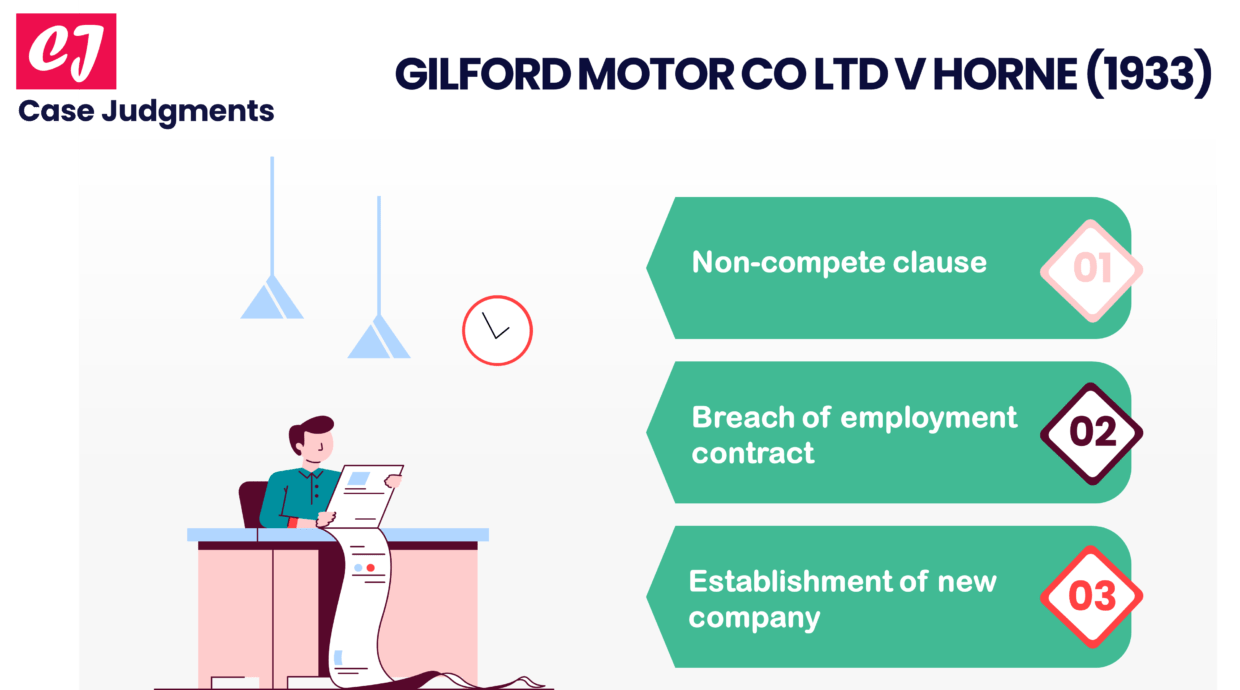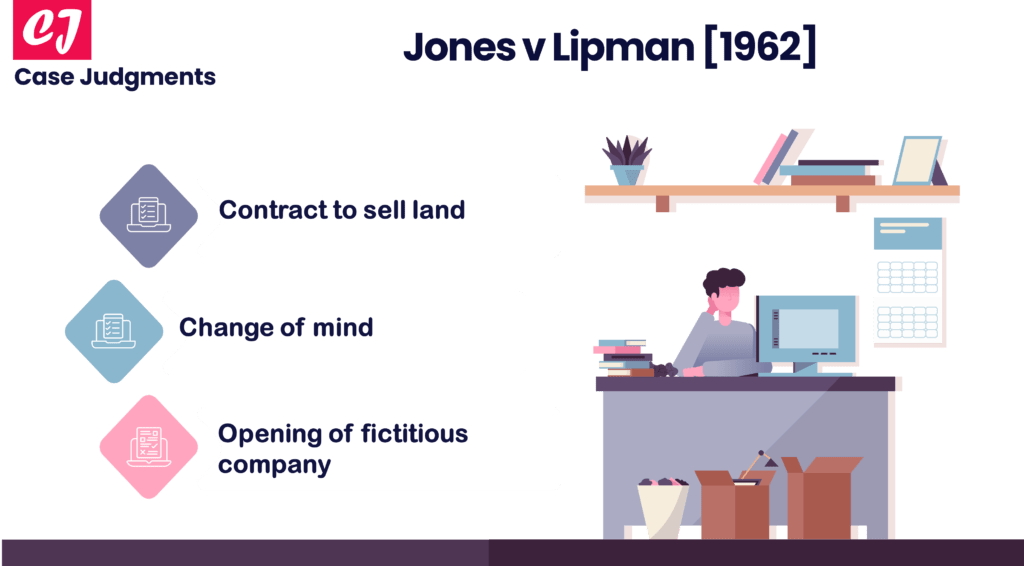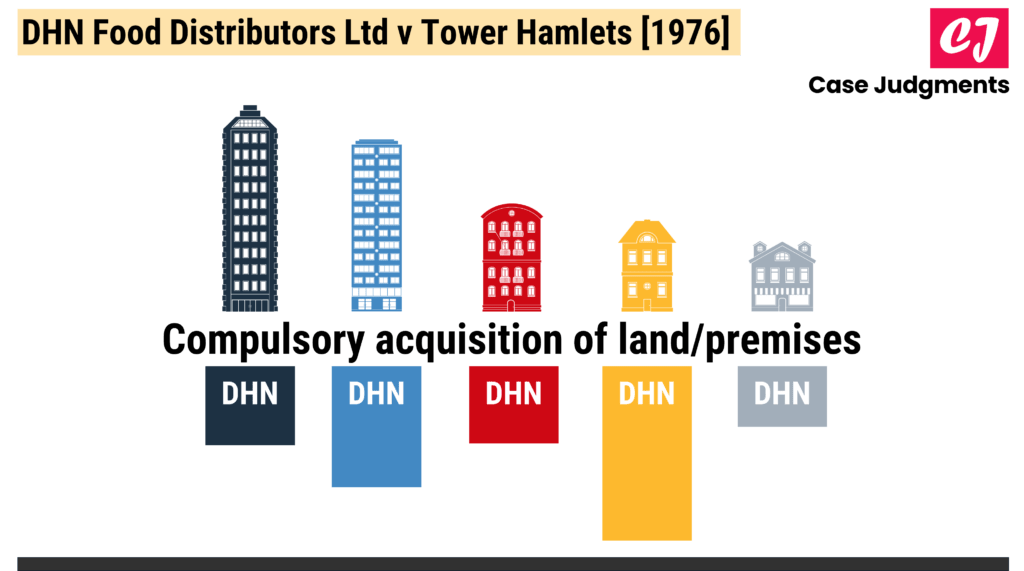
Gilford Motor Co Ltd v Horne (1933): Case Brief
Case name & citation: Gilford Motor Co Ltd v Horne [1933] All ER 109, [1933] Ch 935
Court and jurisdiction: Court of Appeal, England and Wales
Year of the case: 1933
The bench of judges: Lord Hanworth MR, Lawrence and Romer LJJ
Area of law: Corporate veil
What is the case about?
Gilford Motor Co Ltd v Horne [1933] is a case that pertains to company law provisions in the United Kingdom and deals with piercing the corporate veil.
Facts of the case (Gilford Motor Co Ltd v Horne)
Mr. Horne was employed as the managing director of Gilford Motor. Horne was given the position of managing director of Gilford Motor Company on the condition that he would not attempt to solicit the customers of the company either while he held the position of managing director of the company or after he left it. After he resigned, he attempted to circumvent this obligation (of non-complete clause) by forming a company to conduct the solicitation. He established a rival business to Gilford Motor, in which the sole shareholders were Mr. Horne’s wife and one of his business associates.
Only Horne himself was subject to any legal restrictions imposed by Gilford; the new company itself was not.
Proceedings were initiated by Gilford Motor alleging Horne to have breached the contract.
Gilford Motor argued that the Court should look through the corporate veil of the new company to determine that Mr. Horne was the person behind it and that the non-compete clause in the employment contract should be interpreted as binding not only on Mr. Horne personally but also on the new company.
Issue that arose
Had Horne violated his non-compete clause by establishing a competing business?
Judgment of the Court in Gilford Motor Co Ltd v Horne
In this particular case, the Court found that the company in question had been established with the sole or primary intention of evading the non-compete clause. It was willing to consider both Mr. Horne and the company to be legally obligated to comply with it.
It was decided that the company that Horne started was nothing more than a mere cloak or sham in order to provide him with the opportunity to violate the terms of his agreement prohibiting solicitation.
The Court granted injunctive relief both against Mr. Horne and the new company.
As a result, the company was prohibited from attempting to take customers away from Gilford Motor Company.
Reasoning behind the decision
The corporate veil must be lifted up in cases where a company is incorporated as a device or strategy with the intention of concealing the identity of the person who is the perpetrator of the fraud. If a person forms a company with the intention of evading specific performance of his contracts, the Court will order specific performance to be carried out by the company.
In other words, the formation of a company by an individual in an effort to avoid specific performance of his contracts will not prevent the Court from ordering that the contracts be performed in their entirety.
List of references:
- https://epgp.inflibnet.ac.in/epgpdata/uploads/epgp_content/Commerce/10._Corporate_Legal_Framework/02._Company-an_incorporated_entity/et/5325_et_5325_et_02et.pdf
- https://www.law.uh.edu/assignments/spring2012/22237/ch03.pdf
- https://www.3harecourt.com/wp-content/uploads/2020/10/Corporate-Identity-and-Liability-in-the-Modern-World.pdf
You might also like:
More from corporate law:

